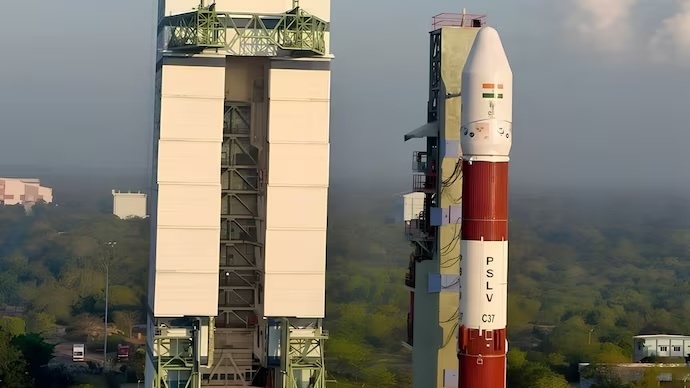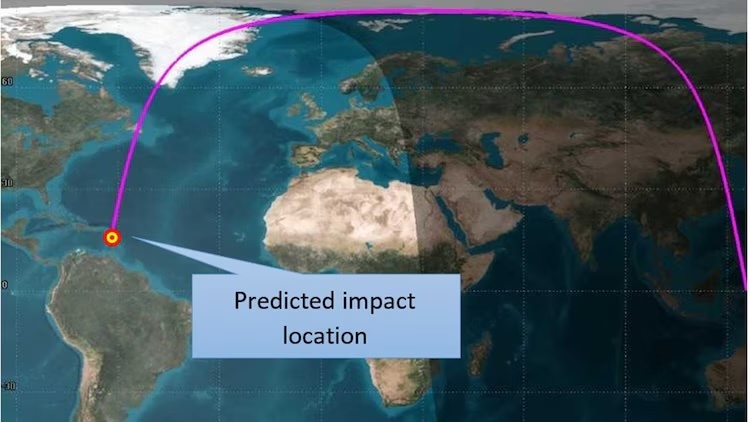8.10.2024
The upper stage of India's PSLV-C37 re-entered Earth's atmosphere, marking the end of its nearly eight-year journey in space.

Eight years after it launched from India with a record 104 satellites to space, the upper stage of the Polar Satellite Launch Vehicle has safely crashed over the Atlantic Ocean.
On October 6, 2024, the upper stage of India's PSLV-C37 re-entered Earth's atmosphere, marking the end of its nearly eight-year journey in space. This event highlights India's commitment to responsible space practices and debris mitigation.
PSLV-C37, launched on February 15, 2017, made history by deploying a record 104 satellites in a single mission. The primary payload was Cartosat-2D, accompanied by 103 co-passenger satellites, including two Indian nanosatellites and various international small satellites.
After successfully injecting all satellites into their designated orbits, the rocket's upper stage (PS4) was left in an orbit of approximately 470 x 494 km.

The atmospheric re-entry of the rocket body took place within 8 years of its launch. (Photo: Isro)
Over time, its altitude gradually decreased due to atmospheric drag, a process closely monitored by the Indian Space Research Organisation (ISRO) through its IS4OM (ISRO System for Safe and Sustainable Space Operations Management) facility.
The re-entry occurred on October 6, 2024, as predicted by both US Space Command and IS4OM, with the debris impacting the North Atlantic Ocean.
This re-entry, happening within eight years of launch, fully complies with international debris mitigation guidelines, which recommend limiting the post-mission orbital life of objects in Low-Earth orbit to 25 years.
The agency has been actively working to reduce the orbital lifetime of PSLV upper stages to five years or less through controlled de-orbiting maneuvers. Missions like PSLV-C38, PSLV-C40, PSLV-C43, PSLV-C56, and PSLV-C58 have already implemented these practices.
Looking ahead, ISRO plans to introduce controlled re-entry of upper stages in future PSLV missions, further minimising space debris. These efforts align with ISRO's Debris Free Space Mission (DFSM) objectives, aiming for implementation by 2030.
Quelle: INDIA TODAY
